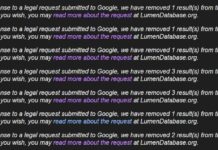
Rhode Island made a significant step in abolishing its sports betting monopoly model. On June 4, the Senate passed a bill that would open the market to five operators in 2026.
While it was among the first states to approve sports betting in 2019, Rhode Island chose a one-operator model. Currently, gaming and lottery giant International Gaming Technology (IGT) runs Sportsbook Rhode Island. Its contract expires in 2026.
Senate Bill 748 (SB 748), sponsored by Senate Majority Leader Frank Ciccone, would require the Rhode Island Lottery Commission not to renew IGT’s contract. It would also need to open invitations to potential applicants before IGT’s contract expires. The commission would also ensure all approved operators adhere to regulatory requirements.
The Senate’s 30-3 vote in favor of SB 748 comes on the heels of a Spectrum Gaming Group’s report. The report recommends that the state open the market to four to six sports betting operators.
SB 748 now moves to the House, which has until June 30 to vote on it.
IGT Opposes Rhode Island Bill, DraftKings Praises It
IGT rejects the notion that more operators will bring more revenue to the state. In a Senate testimony, IGT Senior VP, Joe Bertolone stated that the Rhode Island model outperforms neighboring states with multi-license systems.
He added: “This strong fiscal performance is not coincidental; it reflects the benefits of centralized operations, cohesive marketing and product development through committed in-state operating partners. … The data strongly suggests that maintaining the current model is the most prudent course of action to safeguard and grow state revenues.”
IGT noted that it was the only license candidate in 2019. It added that to attract more operators, the state must cut its 51% tax rate, which is among the highest in the country.
However, reducing the tax rate might result in more wagering, but it would not necessarily lead to more revenue for Rhode Island. That’s because the operators would take a higher cut of the handle. According to IGT, the state currently receives $17.44 per person, compared with $9.78 in multi-operator Connecticut.
In contrast, DraftKings believes opening up the market will bring a better experience to the players.
“A marketplace with multiple choices for players leads to a better player experience – operators are forced to innovate, while competing for business.”
According to DraftKings Senate testimony, Rhode Islanders spend $38 per adult resident on sports betting, which is one of the lowest in the country. For comparison, in Massachusetts, that number is nearly double.
Senate Bill 748 Doesn’t Address Key Concerns
Despite strong support in the Senate, SB 748 does not address one key issue: the tax rate. IGT and the Spectrum Gaming study also highlighted that.
The state taxes Sportsbook Rhode Island at 51%. That is tied for the highest rate in the country with New York and New Hampshire. Additionally, the sportsbook incurs a 17% server hosting fee to Bally’s Corporation.
While DraftKings supports SB 748, it’s unknown whether it would pursue a license with such a high rate. While it operates in New Hampshire, DraftKings holds a monopoly in the market.
Lottery Director Mark Furcolo raised another potential issue in a letter to the Senate Committee on Gaming and Labor in April. Furcolo claimed that SB 748 could violate regulators’ constitutional authority to renew gaming contracts. The Lottery Director also added concerns on whether expanding to five vendors is economically feasible.
However, it seems that Furcolo has come round to the idea of more licenses. Last month, he announced that he had informed the legislative committee overseeing the state’s gambling sector that the lottery intends to issue a request for information (RFI) in early 2026.
Still, the potential constitutional issue remains.











